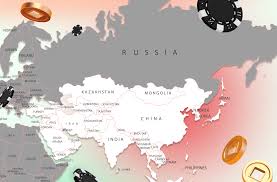
Gambling has long been a controversial and illegal activity in Pakistan, where it is prohibited under Islamic law. However, the cultural attitudes toward gambling vary significantly across different regions of the country, shaped by local customs, religious beliefs, and socio-economic factors. While the legal framework remains consistent, social acceptance and engagement with gambling differ depending on the region, community, and even the form of gambling in question. In this article, we explore how gambling is perceived in various parts of Pakistan, shedding light on the regional differences and the factors influencing these views.
Urban vs. Rural: A Divide in Social Acceptance
In Pakistan, the contrast between urban and rural areas is stark, and this divide extends to the perception of gambling. In larger cities like Karachi, Lahore, and Islamabad, where modernity and globalization are more prevalent, gambling has gained a certain level of social acceptance, albeit in underground settings. Urban residents may be more exposed to online gambling platforms, casinos, and sports betting, thanks to higher internet penetration and access to international media. As a result, urban youth, particularly those from the middle and upper classes, may be more likely to engage in or normalize gambling activities, even if these activities are illegal.
On the other hand, rural areas, where traditional values and religious conservatism hold more sway, generally maintain a stricter view on gambling. In these regions, gambling is often seen as a moral failing and is frowned upon by local communities. In more conservative villages, the concept of gambling may be associated with negative stereotypes—such as greed, dishonesty, and irresponsibility—which reinforce the idea that gambling is immoral and harmful. The lack of access to online gambling platforms in rural areas, combined with a stronger influence of local religious leaders, helps perpetuate these more rigid views.
Gambling in the Tribal Areas: A Blend of Tradition and Modernity
In the tribal areas of Pakistan, particularly in regions like Khyber Pakhtunkhwa (KP) and Balochistan, gambling has a unique cultural significance. Traditional forms of gambling, such as card games (like teen patti) or betting on animal fights, have existed for centuries as part of tribal festivities or informal social gatherings. These activities are sometimes seen as integral to local customs and traditions, and the line between harmless entertainment and vice can be blurred.
In KP and parts of Balochistan, gambling is sometimes associated with local social events, such as weddings or celebrations, where friendly wagers or bets on sports or games may occur. While there is an underlying cultural tolerance for such activities, it is important to note that this acceptance exists within a context of personal relationships and informal networks. The influence of religious leaders is significant in these regions, and their stance on gambling often determines how openly it can be discussed or practiced. In more conservative tribal areas, where Pashtunwali (the Pashtun code of ethics) holds sway, gambling may still be regarded as a disgraceful activity, with the practice kept hidden or restricted to clandestine circles.
The Impact of Religion on Regional Views of Gambling
Religion plays a central role in shaping attitudes toward gambling in Pakistan, and this influence is particularly evident in regions with strong religious identities. In the heartland of Pakistan’s conservative religious communities, such as in the interior of Sindh, Southern Punjab, and the rural areas of Khyber Pakhtunkhwa, religious beliefs strongly oppose gambling as both sinful and harmful to the individual and society. Islamic teachings prohibit gambling under the concept of “maysir” (the Arabic term for gambling), and this belief is reinforced through local religious leaders, who actively campaign against gambling in their communities.
In these regions, gambling is considered a serious moral failing and is often associated with poverty, addiction, and family breakdown. The consequences of engaging in gambling are viewed as not only legal violations but also spiritual transgressions. Local mosques and religious schools often hold anti-gambling campaigns or lectures to remind the community of the Islamic prohibitions. For individuals living in these areas, the societal stigma attached to gambling is intense, and there is a strong desire to avoid the activity to maintain both social status and religious piety.
In contrast, in larger, more cosmopolitan cities like Karachi and Lahore, where religious conservatism may be more tempered by secular influences, the religious opposition to gambling is still present but may not be as widely enforced or as intensely observed. While there are still religious leaders and communities in urban areas who maintain strict anti-gambling views, the pressure to conform to these views is often less pronounced. This gives way to a more permissive attitude toward gambling, particularly in private settings.
The Role of Sports Betting and Cricket Culture
Across Pakistan, one of the most prominent forms of gambling is sports betting, particularly on cricket. The country’s national obsession with cricket provides a unique lens through which to view regional gambling attitudes. In urban centers, betting on cricket matches is increasingly common, especially during international tournaments like the World Cup or the Pakistan Super League (PSL). Online sports betting platforms have made it easier for people across the country to place bets on their favorite teams and players, which has led to a normalization of gambling in the context of sports.
In contrast, rural regions and smaller towns tend to focus on more traditional forms of betting, such as local card games or dice games, which are often played in private gatherings. While cricket-related betting exists in rural areas, it is often seen as a form of entertainment that takes place within smaller, more private circles, rather than as a widespread, openly discussed activity.
The perception of sports betting in urban areas can range from a casual, almost recreational activity to something more serious. Many young people, particularly in urban centers, view it as part of the excitement surrounding cricket matches, making it a social and cultural activity rather than a purely illicit one. In contrast, sports betting in rural areas is generally viewed with suspicion and disapproval, particularly among the older generation, who associate it with corruption and moral decay.
The Influence of Media and Online Gambling
With the rise of internet access and mobile phones in Pakistan, online gambling has become more prevalent, especially in urban areas. The accessibility of online gambling platforms and the increasing number of sports betting websites have facilitated the growth of gambling among Pakistanis, regardless of regional boundaries. The influence of global media, including social media platforms and online content, has also played a significant role in normalizing gambling behavior across different demographics. While urban youth may view online gambling as a harmless form of entertainment, those in more conservative regions remain largely disconnected from these platforms.
In some parts of Punjab and Sindh, there is growing awareness of the accessibility of online gambling, particularly through mobile applications or international betting websites. However, these platforms remain less visible in rural areas where internet penetration is lower and access to technology is more limited. Nonetheless, as internet infrastructure improves and mobile phone usage increases, gambling could become more prevalent across all regions of Pakistan, albeit with varying levels of social acceptance.
Conclusion
In Pakistan, the perception of gambling varies significantly across different regions, influenced by local customs, religious beliefs, and access to modern technology. Urban areas with greater access to online gambling platforms and more liberal attitudes toward modern entertainment tend to have a more relaxed view of gambling, whereas rural and conservative regions maintain a strict opposition due to religious teachings and traditional values. While gambling is illegal in all regions, the level of societal stigma and the forms of gambling that are prevalent differ widely. As technology continues to evolve and as gambling becomes more accessible, it is likely that these regional differences will continue to shape the future of gambling in Pakistan. However, understanding these regional variations is essential for addressing the complex issues surrounding gambling addiction, legal reform, and social awareness in the country.
Experience Thrills and Big Rewards at KKClub Casino – Pakistan’s Premier Gaming Hub!



